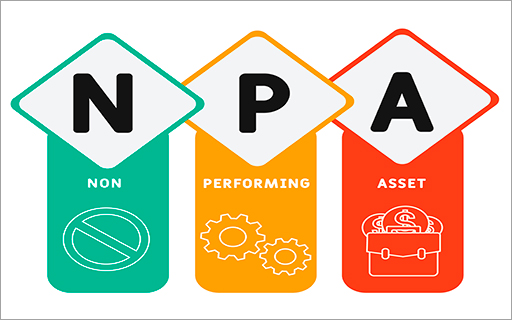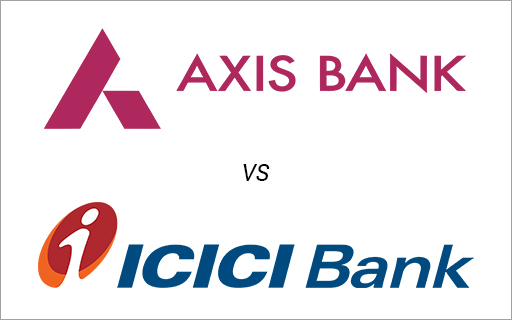Our Big Prediction
This Could be One of the Exciting Opportunities for Investors
- Home
- Outlook Arena
- How AI Will Impact the Banking Sector. Everything You Need to Know...
How AI Will Impact the Banking Sector. Everything You Need to Know...

The world of banking is on the brink of a digital upheaval and at its heart stands the enigmatic force of Artificial Intelligence (AI).
Imagine transactions that anticipate your needs, customer service that never sleeps, and risk assessments that predict market storms before they brew.
From the vaults to virtual interfaces, AI is rewiring the banking sector's DNA.
While the use of AI is still in early stages in the Indian banking industry, it is only a matter of time, that it will be used extensively.
With the inclusion of AI, the Indian banking industry could see an improvement in efficiency, reduction in costs, and better quality of products and services.
Here are some of the areas where, we at Equitymaster, believe that AI could bring significant growth.
#1 Customer Experience and Personalisation
AI-powered chatbots and virtual assistants can enhance customer service by providing instant support, personalised recommendations, and efficient query resolution.
Natural Language Processing (NLP) capabilities enable banks to offer conversational interfaces, improving the overall customer experience and reducing response times.
#2 Fraud Detection and Security
AI algorithms can analyse vast amounts of transactional data and detect patterns indicative of fraudulent activities.
By leveraging machine learning and anomaly detection techniques, banks can strengthen their fraud detection and prevention mechanisms, minimise financial losses, and protect customer assets.
#3 Risk Assessment and Credit Scoring
AI algorithms can analyse customer data, including credit history, financial statements, and alternative data sources, to assess creditworthiness and determine appropriate risk profiles.
This can enable banks to make faster and more accurate credit decisions, leading to improved loan underwriting and risk management.
#4 Regulatory Compliance and Anti-Money Laundering (AML)
AI-powered systems can assist banks in automating regulatory compliance processes, such as Know Your Customer (KYC) procedures and AML checks.
AI algorithms can quickly analyse vast volumes of data, identify suspicious transactions, and generate alerts, helping banks comply with regulatory requirements more efficiently.
#5 Process Automation and Efficiency
AI technologies like Robotic Process Automation (RPA) can automate manual and repetitive tasks in banking operations, such as data entry, document processing, and reconciliation.
By streamlining workflows and reducing human errors, banks can achieve operational efficiency, cost savings, and faster turnaround times.
#6 Data Analytics and Insights
AI enables banks to analyse vast amounts of structured and unstructured data to derive meaningful insights and actionable intelligence.
Advanced analytics techniques, such as predictive modelling and data mining, help banks understand customer behaviour, identify market trends, and develop targeted products and services.
#7 Wealth Management and Investment Advisory
AI-powered wealth management platforms can provide personalised investment recommendations based on individual risk profiles, financial goals, and market analysis.
Robo-advisors equipped with AI algorithms can automate portfolio management, rebalancing, and asset allocation, making wealth management services more accessible and affordable.
#8 Process Optimisation and Cost Reduction
AI can optimize various banking processes, such as loan origination, customer onboarding, and account reconciliation, leading to streamlined operations and cost reductions.
By automating labour-intensive tasks, banks can reallocate resources to more value-added activities and achieve operational efficiency.
Challenges impeding adoption of AI in the Indian banking industry
The adoption of AI in the banking industry also raises many concerns that need to be addressed. Here are some of the challenges we believe that the industry may face.
#1 Regulatory framework
Implementing AI in banking requires a robust regulatory framework that addresses data protection, privacy, algorithmic transparency, and ethical considerations.
Indian banks will need to navigate the evolving regulatory landscape and ensure compliance with relevant guidelines and policies set by regulators such as the Reserve Bank of India (RBI).
#2 Data quality and availability
AI algorithms heavily rely on quality data for accurate decision-making. Indian banks may face challenges in ensuring the availability of clean, reliable, and diverse data sets required to train AI models.
Data standardisation and integration across multiple systems within the banking sector may pose additional difficulties.
#3 Digital divide and accessibility
India has a diverse population with varying levels of digital literacy and access to technology. Ensuring equitable access to AI-driven banking services can be a challenge, particularly for customers in rural areas or those who are less tech-savvy.
Banks need to consider inclusivity and bridge the digital divide when introducing AI-powered services.
#4 Trust and customer acceptance
Trust is crucial in the banking industry, and the introduction of AI may raise concerns among customers regarding data privacy, security, and transparency.
Indian banks must proactively address these concerns, educate customers about AI capabilities, and demonstrate the benefits and safeguards in place to ensure customer acceptance and trust.
#5 Skill development and talent acquisition
The successful implementation of AI requires a skilled workforce with expertise in AI technologies, data science, and machine learning.
Indian banks may face challenges in attracting and retaining AI talent due to the high demand and competition for skilled professionals. Investing in skill development programs and collaborations with educational institutions can help address this challenge.
#6 Cultural and regional variations
India is a diverse country with different languages, cultural practices, and regional variations.
AI models and systems must account for these diversities to ensure effective and inclusive banking services. Banks need to consider local nuances and tailor their AI solutions accordingly.
Indian banks leading the way with early AI adoption
Now that you know about both the opportunities and challenges that AI poses in the banking industry, let’s look at the Indian banks that are at the forefront of this revolution.
Here are the top three...
#1 HDFC Bank
The company is on a mission to use AI to automate every possible process. It currently uses AI for processes such as underwriting, credit score and for credit card payment checking.
It also uses AI in the signature verification process for clearing cheques. The bank’s machine learning algorithm processes more than 250,000 cheques a day with almost 80% accuracy.
In 2017, the bank announced the launch of Eva (electronic virtual assistant), a futuristic AI-driven chatbot for customer service.
Today the bot does more than that. It handles transactions like bill payments, ticket booking, etc. It holds more than 20,000 conversations everyday with customers from all over the world.
Besides Eva, the bank also uses an intelligent AI-enabled bot to improve the efficiency of the credit decision process.
Eye balling is of paramount importance in the credit decision process, and the bot mimics a human by eye balling the customer demographics for those who have applied for loans against the already existing base.
HDFC Bank invested in Lentra AI a financial services focussed software products startup in 2019. In 2022, the startup then acquired artificial intelligence solutions company, TheDataTeam for an undisclosed amount.
The deal is expected to help banks and financial institutions make better data-driven decisions on customers' loan repayment history.
Lentra will use TheDataTeam's Cadenz, a behaviour intelligence platform to help financial institutions make data-driven decisions.
#2 Kotak Mahindra Bank
In the year 2016-17, Kotak Mahindra Bank shifted its focus to AI.
Some of the earlier AI models deployed by the banks were for propensity-based targeting of customers, enabling the bank to provide personalised offers and determine the next best offer for each individual.
Now, the bank has expanded its use cases as the application of AI and ML has become more diverse and sophisticated.
The bank has implemented AI solutions to combat fraud, bolster risk management practices, and fortify security measures.
It is also exploring all the options, from the GPT models by OpenAI to all the open-source LLMs available.
Recently, Kotak Mahindra Bank tied up with actyv.ai, an AI-powered enterprise SaaS platform. Kotak is committed to empowering small-and medium-scale business owners by helping them address their credit requirements.
The partnership with a technology platform like actyv.ai helps it ease supply chain bottlenecks for businesses with technological advancements.
#3 ICICI Bank
ICICI Bank is adopting Artificial Intelligence (AI) and Machine Learning (ML) in a big way.
Over the last �couple of years, these technologies have reduced internal costs for the bank and helped significantly drive its deposit and lending growth.
The AI and ML is essentially being used to a) figure out patterns and b) most importantly, get feedback of early warning signals back into the credit underwriting process.
These technologies lead to a lower operating cost, lower acquisition cost, lower cost of collection and lower credit cost.
The bank is also building a vast data lake to upgrade its customer behaviour analytics. It will experiment with new uses that can improve product penetration and customer stickiness.
It has deployed software robotics in over 200 business processes across various functions of the company.
The bank said it is the first in the country and among a few globally to deploy this technology, which emulates human actions to automate and perform repetitive, high-volume and time-consuming business tasks.
It has created the software robotics platform mostly in-house, leveraging AI features such as facial and voice recognition, natural language processing, machine learning and bots among others.
The future of AI in the Indian banking industry
The future of AI in the Indian banking industry appears transformative and promising.
AI technologies, such as machine learning and natural language processing, are poised to revolutionise customer interactions, fraud detection, risk assessment, and operational efficiency.
Personalised services driven by AI will enhance customer experiences, while data-driven insights will aid in informed decision-making.
Chatbots and virtual assistants will streamline customer support, reducing wait times. However, challenges like data security, regulatory compliance, and workforce adaptation must be addressed.
As AI continues to evolve, Indian banks that embrace these advancements will likely gain a competitive edge, reshaping the industry's landscape.
Conclusion
The impact of AI on the banking sector is poised to be revolutionary and far-reaching.
From automating routine tasks to enabling sophisticated fraud detection and risk assessment, AI is transforming the way banks operate and interact with customers.
The seamless integration of AI-powered chatbots and virtual assistants enhances customer experiences while driving operational efficiency. However, as AI adoption accelerates, concerns about data security, privacy, and ethical use must be carefully navigated.
To fully harness the potential of AI, the banking sector needs to embrace innovation, invest in AI research, and collaborate across disciplines. The future holds immense possibilities as AI reshapes the banking landscape.
List of AI Stocks in India
The details of listed AI companies can be found on the NSE and BSE website.
For a more direct and concise view of this information, you can check out our list of AI stocks.
You can also check out Equitymaster's Powerful Indian stock screener for filtering the best AI stocks in India and the best automobile stocks in India.
And our article on the Top 5 Artificial Intelligence Stocks to Add to Your Watchlist.
If you’re looking for the top unconventional AI stocks, you can check out Richa Agarwal’s video on the same.
Richa is the Editor of Hidden Treasure, Equitymaster’s smallcap recommendation service.
![]() Why IndusInd Bank Share Price is Falling
Why IndusInd Bank Share Price is Falling
Nov 19, 2024
Another banking stock continues to be under pressure. Find out what's driving the downward trend in Indian banking stocks.
![]() Most Wanted Stocks 2024: 3 AI Stocks that Fund Managers have Been Most Bullish on in the Last One Year
Most Wanted Stocks 2024: 3 AI Stocks that Fund Managers have Been Most Bullish on in the Last One Year
Nov 6, 2024
Fund managers have shown a steady preference for these three AI stocks over the last four quarters. More details inside...
![]() How a Universal Banking License Could Boost Fortunes of these Small Finance Bank Stocks
How a Universal Banking License Could Boost Fortunes of these Small Finance Bank Stocks
Oct 24, 2024
With profitability of small finance banks expected to moderate in FY25, getting a universal banking licence could shake things up in a big way.
![]() Top 5 Banking Stocks That Should be on Your Radar for 2025
Top 5 Banking Stocks That Should be on Your Radar for 2025
Oct 14, 2024
Beneath the surface, the fundamentals of many banks remain strong, and the sector is far from stagnant.
![]() Best Banking Stock: ICICI Bank vs SBI
Best Banking Stock: ICICI Bank vs SBI
Oct 2, 2024
SBI or ICICI - which banking stock is better from an investor's perspective?
![]() Top Artificial Intelligence Stocks in India 2024: AI Companies to Add to Your Watchlist
Top Artificial Intelligence Stocks in India 2024: AI Companies to Add to Your Watchlist
Aug 17, 2024
With the AI competition heating up in India, here are the key stocks to keep on your radar.
![]() Top Deep Tech Shares in India 2024: Deep Tech Companies to Add to Your Watchlist
Top Deep Tech Shares in India 2024: Deep Tech Companies to Add to Your Watchlist
Jul 6, 2024
As India's deeptech race heats up, these companies are well-poised to capitalise on the major investment megatrend
![]() Nifty Bank @ 52,000: Why Banking Stocks Are Rising
Nifty Bank @ 52,000: Why Banking Stocks Are Rising
Jun 20, 2024
The Nifty Bank index continues to hit record levels each passing day. But for how long?
![]() 5 Artificial Intelligence (AI) Stocks that Could be the Next Nvidia
5 Artificial Intelligence (AI) Stocks that Could be the Next Nvidia
Jun 7, 2024
What are the top Indian AI stocks that could be the next Nvidia? Find out...
![]() Top 5 Indian Private Banking Stocks with the Lowest NPAs in FY24
Top 5 Indian Private Banking Stocks with the Lowest NPAs in FY24
May 19, 2024
Banks with low NPAs are better positioned to weather economic downturns and market volatility.
![]() Is HDFC Bank One of the Top Banking Stocks in India?
Is HDFC Bank One of the Top Banking Stocks in India?
Nov 9, 2024
Which is the best banking stock to invest in India? Find out...
![]() Prediction: Here's Where ICICI Bank Share Price is Headed in 2025
Prediction: Here's Where ICICI Bank Share Price is Headed in 2025
Oct 30, 2024
What is the outlook for the stock of ICICI Bank? Find out...
![]() HDB Financial Services IPO: Parent HDFC Bank Shares a Major Update on Timeline
HDB Financial Services IPO: Parent HDFC Bank Shares a Major Update on Timeline
Oct 21, 2024
HDFC Bank has more than 9,000 branches across the country, and that would play a key role in the "deposit war" currently underway.
![]() Top 5 Quantum Computing Stocks in India
Top 5 Quantum Computing Stocks in India
Oct 3, 2024
Amid the excitement around artificial intelligence, quantum computing is quietly emerging as a transformative technology. Here are the top 5 quantum computing stocks in India.
![]() These 4 Artificial Intelligence (AI) Stocks Could See Incredible Growth in 2025
These 4 Artificial Intelligence (AI) Stocks Could See Incredible Growth in 2025
Aug 31, 2024
Which are the top companies working in the AI sector in India? Find out...
![]() Best IT Stock: Wipro vs Tech Mahindra
Best IT Stock: Wipro vs Tech Mahindra
Jul 29, 2024
India's IT industry is experiencing a period of robust growth and transformation on account of high demand for cloud and digital transformation services and this company is all set to benefit from it.
![]() The Top Semiconductor Stock That's Not Named NVIDIA
The Top Semiconductor Stock That's Not Named NVIDIA
Jun 21, 2024
Let's take a closer look at this Indian semiconductor giant, that has the potential to become India's Nvidia.
![]() The AI Hype is Real. Top 4 Smallcap Stocks Poised for Explosive Growth
The AI Hype is Real. Top 4 Smallcap Stocks Poised for Explosive Growth
Jun 8, 2024
With giants grabbing the headlines, these small players are racing to dominate this niche. Here are the top four to watch out for.
![]() Best PSU Bank Stock: Bank of Baroda vs PNB
Best PSU Bank Stock: Bank of Baroda vs PNB
May 23, 2024
Both PSU banks are well-recognised with extensive branch networks. But which one's better from an investor's perspective?
![]() Best Private Bank Stock: Axis Bank vs ICICI Bank
Best Private Bank Stock: Axis Bank vs ICICI Bank
May 16, 2024
Both these lenders recently posted their Q4 earnings. They have a similar share price range. So the question is - which one's better?





















